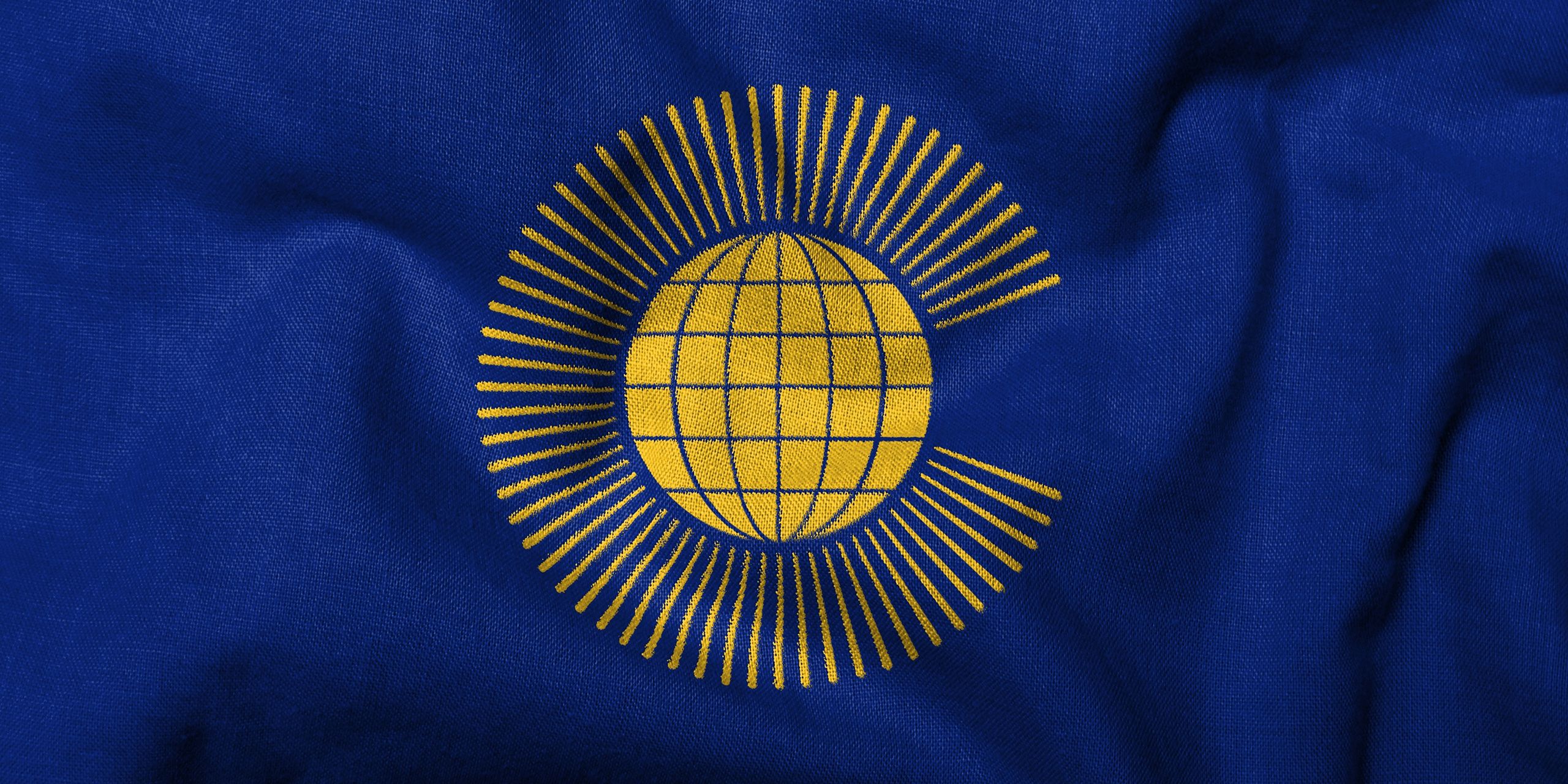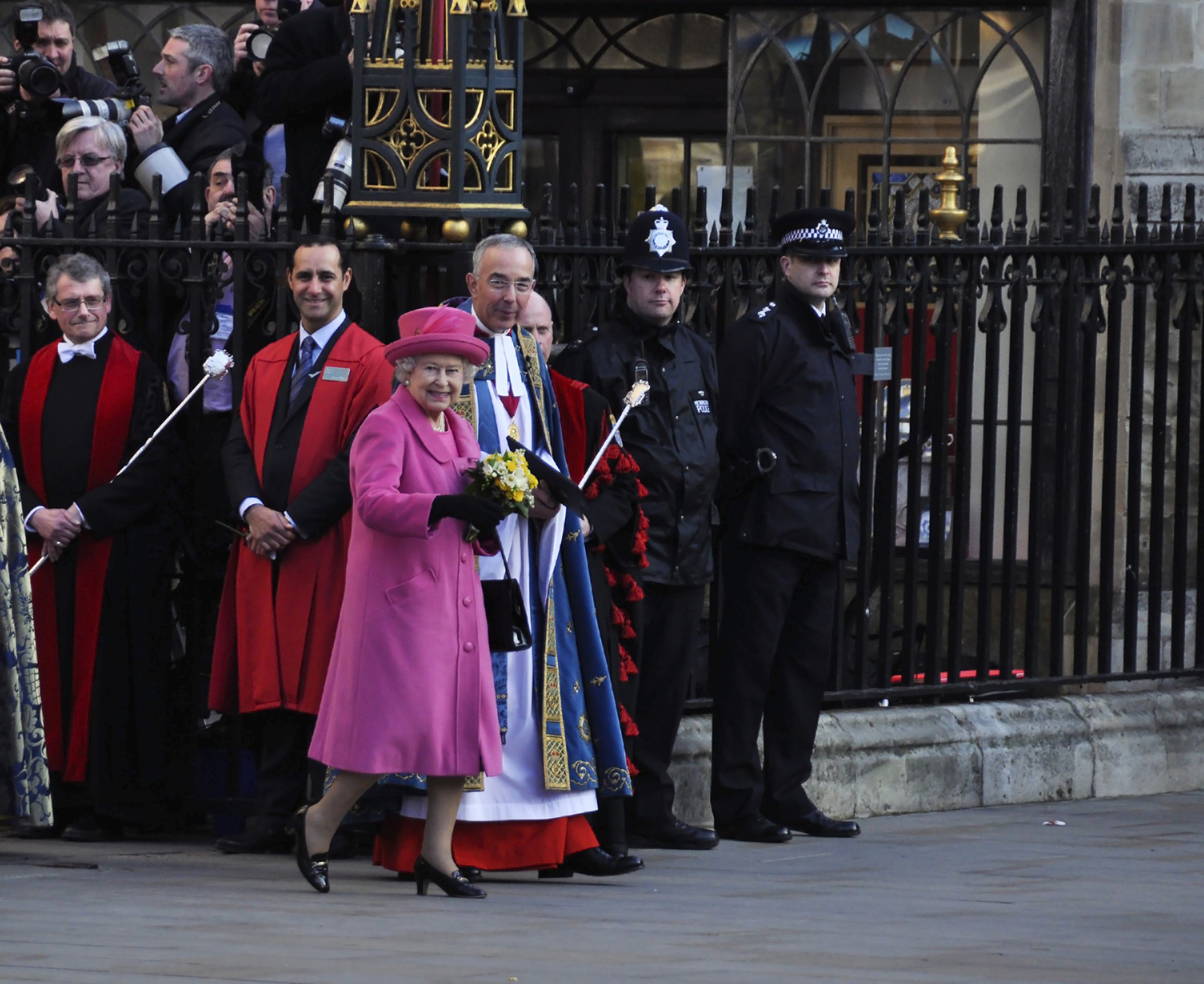THE
GREATEST
STATESMAN
OF ALL
The Times’s Michael Binyon OBE
discusses a lifetime dedicated to the UK
and Commonwealth

If the purpose of diplomacy is to foster friends and promote understanding of one’s country, the late Queen Elizabeth must count as one of the greatest diplomats of all time. Not only did she meet and get to know hundreds of the kings, presidents and prime ministers of most countries in the world; in her 70-year reign, she visited more countries and travelled further than any secretary of the United Nations or British prime minister.
The number of kings, presidents, prime ministers and senior officials gathering at her state funeral is testament to the extraordinary range of countries she had visited and where she had personal contacts. In almost all, she knew not only today’s rulers and heads of state, but often knew their fathers. During her long reign, she visited more than 100 countries, either on full-state visits, or on private visits, often to look at horses and meet trainers. She made regular visits to the United States, as well as 22 to Canada, 16 to Australia and dozens to other Commonwealth countries.
The Queen never initiated foreign policy. But she was the figurehead to signal change in British policy, to consolidate new friendships and to overcome old differences. She made the first state visit to west Germany in 1965, signalling Germany’s full acceptance by its allies after the Second World War. She travelled to Russia during President Yeltsin’s time, a sign that the Cold War was over - at least, it appeared to be then. And perhaps one of the most important visits came late in her reign when she made the first royal visit to the Republic of Ireland since her grandfather went to Dublin as King before the First World War. During four days of deft and tactful diplomacy, including beginning a speech in Gaelic, the Queen did more to win affection in Ireland and set aside centuries of bitterness than any Westminster politicians were able to achieve.
The Queen never initiated foreign policy. But she was the figurehead to signal change in British policy, to consolidate new friendships and to overcome old differences

It was the Commonwealth, however, where her interests really lay. As Queen, she began her reign when much of Africa, Asia, the Caribbean and the Pacific were coloured pink on the maps, and had presided over the independence of dozens of former British colonies in the 1960s. She was determined to maintain links with the newly emerging independent states, and with deft authority she smoothed relations that had often proved tricky in the run-up to independence. She forged relationships with many African leaders, from the mercurial Kwame Nkrumah in Ghana to the exuberant Kenneth Kaunda in Zambia. These friendships gave her role as head of the Commonwealth a significance that alone kept such a disparate club together.
No relationship was as deep, as enduring and as politically important as her friendship with Nelson Mandela, South Africa’s first black president after the end of apartheid. He was the only foreign leader who called her just “Elizabeth” and was able to telephone her at any time of the day.
Had the Queen not persisted in upholding the Commonwealth at a time when Britain seemed indifferent to its affairs, the unique 56-nation body would long ago have dissolved amid argument and differing interests. The Queen was not afraid to take a stance if she thought the Commonwealth was in danger. She came close to an open quarrel with Margaret Thatcher, when the strong-minded British prime minister opposed sanctions on South Africa during apartheid, and had also earlier disapproved of the sale of arms to South Africa by Edward Heath, an earlier Conservative prime minister.
It was largely thanks to her patronage that the Commonwealth was able to set up a range of scholarships, exchanges, development funds and common professional bodies. This in turn gave the multi-nation grouping an attractiveness that persuaded other African countries that had never been British colonies to join. The Queen never was able to visit the three newcomers, Rwanda, Cameroonand Mozambique, however – among the only members she did not visit.
During four days of deft and tactful diplomacy, including beginning a speech in Gaelic, the Queen did more to win affection in Ireland and set aside centuries of bitterness than any Westminster politicians were able to achieve.
Had the Queen not persisted in upholding the Commonwealth at a time when Britain seemed indifferent to its affairs, the unique 56-nation body would long ago have dissolved amid argument and differing interests.
As head of state, the Queen also represented Britain at historical and international gatherings. She joined the American President and other wartime allies on several occasions on the beaches of Normandy to commemorate the D-Day landings in 1944, and was in later years the only head of state who remembered those extraordinary days, having herself served in uniform during the war. She also formally opened the Olympic Games in London in 2012 and captured the hearts of her countrymen as well as the world with a carefully staged James Bond spoof, when she appeared to parachute out of a plane to arrive at her seat on time.
The Queen was helped in her diplomatic missions by speaking excellent French, which she learnt from governesses as a child. This proved invaluable in assuaging the separatist tendencies of French Canadians at a time when there was a real possibility that Quebec would break away from the rest of the country. She always made part of her speech in French when visiting Canada. And naturally this ability went down well in France. In ordering public mourning on her death and paying tribute to her, President Macron specifically praised her ability and willingness to speak French. She did not speak German, however – although the Duke of Edinburgh, who accompanied her on visits to Germany, was fluent in the language, having himself been at school in Germany before leaving when the Nazis came to power.

Perhaps she took no diplomatic duty more seriously than receiving the accreditation of ambassadors to the Court of St James – the official reception of envoys appointed to Britain. She met hundreds of them, giving each one a private audience and always doing her homework to brief herself on the political situation in their country and the state of relations with Britain. The audience was formal and traditional, and involved the newly arrived ambassador wearing full diplomatic uniform or national dress, and arriving at the palace in an open carriage pulled by horses that the Queen dispatched to pick him or her up.
Karl-Günther von Hase, one of the most distinguished West German ambassadors to Britain in the 1970s, recalled the Queen’s sangfroid when the state coach, sent to collect him, failed to show up. The Queen, in a personal gesture, had asked her Oldenburg greys to pull it, but one of the horses had kicked an axle and broken it. After a lot of scurrying around, a replacement coach was found. Von Hase arrived late for the ceremony and apologised. “Yes,” the Queen replied dryly, “I hear that one of my German horses has been rather naughty.”
The Queen’s other enduring diplomatic duty was to receive British ambassadors before they set off to their new post. There were often long private discussions of the politics and situation in these countries. The Queen, according to several, was always remarkably well briefed, having herself followed political events in those countries.
Perhaps she took no diplomatic duty more seriously than receiving the accreditation of ambassadors to the Court of St James – the official reception of envoys appointed to Britain.
No diplomatic duty was more onerous, however, than state visits. These are always governed by strict protocol, but the politics can be delicate to handle. The Queen hosted a visiting head of state at Buckingham Palace. Mostly the guests behaved well, but a few clearly did not. The Queen let it be known later that she found Nicolae Ceausescu, the former dictator of Romania, especially tiresome as his staff stole a lot of objects from the palace as souvenirs. She also did not get on well with President Mobutu of Zaire (now the Congo), who had smuggled his dog through customs avoiding quarantine. She recalled him as a rather arrogant visitor who had threatened to give all her corgis rabies.
On state visits abroad, the Queen’s itinerary was always meticulously planned with Buckingham Palace, so that she would know what she was meant to do at every minute. The Queen was a stickler for such protocol, and it paid off: most visits went flawlessly. But on one of the few occasions when the host was too casual, King Hassan of Morocco was late and left the Queen waiting in the hot sun for several hours. She was livid and the visit became known as the “tour from hell.” When she arrived at the palace for a state dinner, she found it closed with no one there. The King had changed his mind.
This was the exception. Most visits resulted in warmer ties, increased trade, a boost to tourism and all the results that a good diplomat could hope for. The Queen was indeed, for more than 70 years, Britain’s foremost and most effective face to the world.
